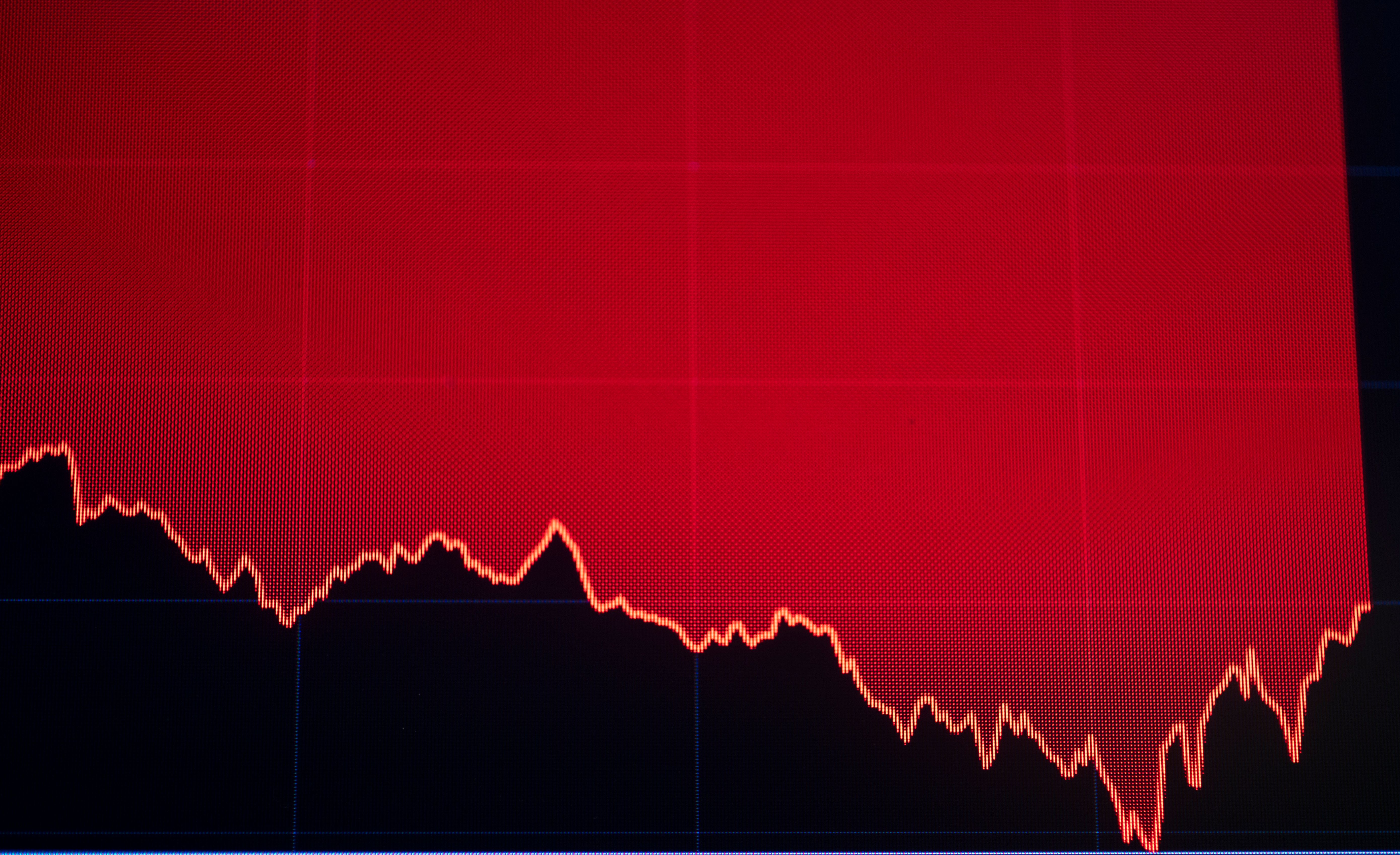Global economy is 'walking on a tightrope,' economist says


A free daily email with the biggest news stories of the day – and the best features from TheWeek.com
You are now subscribed
Your newsletter sign-up was successful
Many economists are pessimistic about the state of the global economy, as the 10-year Treasury note broke below the 2-year rate for the first time in more than a decade in the U.S. and plunging global interest rates may be signaling a looming worldwide recession. Several of those economists provided The Washington Post with their takes on what's going on.
"It seems very fragile at the moment," Torsten Slok, chief economist at Deutsche Bank Securities, told the Post. "We're walking on a tightrope."
Outside of the U.S., the Post reports, 43 percent of bonds are trading at a negative interest rate, which is one of the major reasons for the worried outlook. Those yields have complicated central banks' management of the economy, but raising rates wouldn't necessarily be a quick fix. "If interest rates keep going down, the banks will be under pressure," economist Ashoka Mody, a former International Monetary Fund official said. "If they go up, governments will be under pressure. They're caught in a bit of a pincer."
The Week
Escape your echo chamber. Get the facts behind the news, plus analysis from multiple perspectives.

Sign up for The Week's Free Newsletters
From our morning news briefing to a weekly Good News Newsletter, get the best of The Week delivered directly to your inbox.
From our morning news briefing to a weekly Good News Newsletter, get the best of The Week delivered directly to your inbox.
While negative rates don't spell immediate doom, the longterm outlook is somewhat bleak if the situation remains in its current state. "You can survive, quote-unquote, or can live with negative yields for quite some time," economist Claudio Borio, the head of the monetary and economic department at BIS, said. "Indefinitely? It would be very odd to think about that being possible. There would be distortions in the economy. You will have resources in the wrong sectors, in the wrong firms, and therefore productivity and growth will suffer. On top of that, you're likely to have quite a lot of debt out there, which will make it harder for policymakers to raise rates without creating some tensions and problems." Read more at The Washington Post.
A free daily email with the biggest news stories of the day – and the best features from TheWeek.com
Tim is a staff writer at The Week and has contributed to Bedford and Bowery and The New York Transatlantic. He is a graduate of Occidental College and NYU's journalism school. Tim enjoys writing about baseball, Europe, and extinct megafauna. He lives in New York City.
-
 How the FCC’s ‘equal time’ rule works
How the FCC’s ‘equal time’ rule worksIn the Spotlight The law is at the heart of the Colbert-CBS conflict
-
 What is the endgame in the DHS shutdown?
What is the endgame in the DHS shutdown?Today’s Big Question Democrats want to rein in ICE’s immigration crackdown
-
 ‘Poor time management isn’t just an inconvenience’
‘Poor time management isn’t just an inconvenience’Instant Opinion Opinion, comment and editorials of the day
-
 TikTok secures deal to remain in US
TikTok secures deal to remain in USSpeed Read ByteDance will form a US version of the popular video-sharing platform
-
 Unemployment rate ticks up amid fall job losses
Unemployment rate ticks up amid fall job lossesSpeed Read Data released by the Commerce Department indicates ‘one of the weakest American labor markets in years’
-
 US mints final penny after 232-year run
US mints final penny after 232-year runSpeed Read Production of the one-cent coin has ended
-
 Warner Bros. explores sale amid Paramount bids
Warner Bros. explores sale amid Paramount bidsSpeed Read The media giant, home to HBO and DC Studios, has received interest from multiple buying parties
-
 Gold tops $4K per ounce, signaling financial unease
Gold tops $4K per ounce, signaling financial uneaseSpeed Read Investors are worried about President Donald Trump’s trade war
-
 Electronic Arts to go private in record $55B deal
Electronic Arts to go private in record $55B dealspeed read The video game giant is behind ‘The Sims’ and ‘Madden NFL’
-
 New York court tosses Trump's $500M fraud fine
New York court tosses Trump's $500M fraud fineSpeed Read A divided appeals court threw out a hefty penalty against President Trump for fraudulently inflating his wealth
-
 Trump said to seek government stake in Intel
Trump said to seek government stake in IntelSpeed Read The president and Intel CEO Lip-Bu Tan reportedly discussed the proposal at a recent meeting
